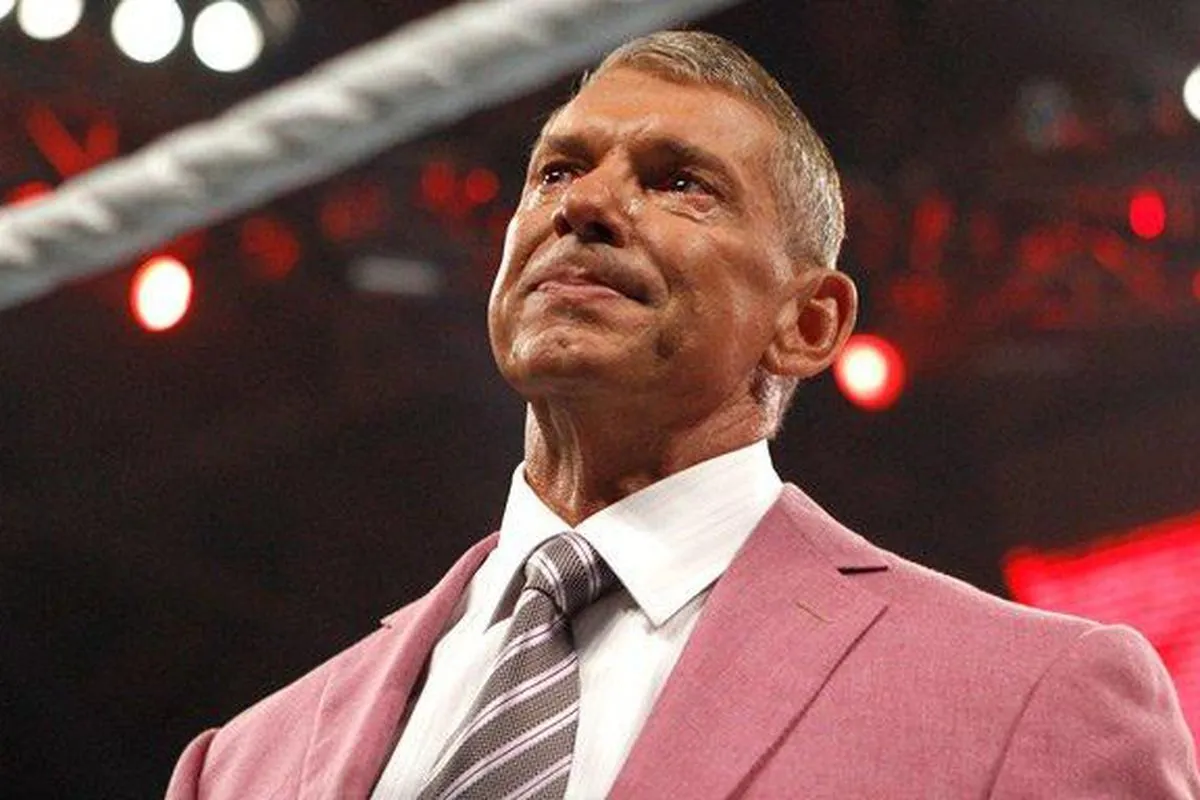
In a recent interview with Post Wrestling, former wrestler Nick Kiniski, the son of Gene Kiniski, revealed that he was propositioned by Terry Garvin in the 80’s.
Garvin was a WWF official at the time, and Kiniski wrestled for the promotion from 1986 to 1987.
Kiniski had alerted Vince McMahon, but that didn’t stop Garvin from pressing him further.
You can check out some highlights from the interview below:
On Garvin propositioning him for sex: “He would come up to me and hit on me … I won’t say what he said, but you’ll understand the meaning behind it. He says ‘Hey Nick, let me perform oral sex on you, you can read a Playboy and you’ll have it made for life.’ And, you know, he is my boss, he controls my boss. This is my livelihood, what I want to do, I kind of joked with him, I said ‘Hey Terry, you know, I’m not that way. But if I ever change, you’ll be the first. I’ll let you be the first.’ We just kinda laughed it off. But he was always kind of coming up and joking, and one time he came to my hotel room late at night and I told him to leave. Knocked at the door. So, it put me in a very awkward position, you know?”
On Garvin suggesting it could affect his career: “There’s no doubt about it. ‘Hey, if you let me do this, you’ll have it made for life financially.’ I mean, there’s no other way to take that.”
On alerting Vince McMahon: “I remember where it was, it was in Milwaukie, Oregon, we wrestled in Portland. I called Vince, and I said ‘Hey, Vince, I don’t think this is right. Terry’s hitting on me. I don’t appreciate that and I would like it to stop.’ And Vince said ‘Oh, ok. I’ll deal with it.’ And that was it. Nothing changed. [Garvin would] still say ‘Hey, have you thought about your proposition?’ as he walks by in the dressing room.”
Former wrestler Nick Kiniski recently spoke out about being propositioned by Terry Garvin, a WWF official, in the 1980s. Kiniski revealed in an interview with Post Wrestling that Garvin would hit on him and make inappropriate comments, despite Kiniski alerting Vince McMahon, the owner of WWF at the time.
During the interview, Kiniski shared some of the encounters he had with Garvin. He mentioned that Garvin would approach him and suggest engaging in sexual activities. Kiniski didn’t disclose the exact words used but explained the meaning behind them. Despite feeling uncomfortable, Kiniski tried to handle the situation with humor, telling Garvin that if he ever changed his mind, Garvin would be the first to know. However, the persistent advances from Garvin put Kiniski in an awkward position, as Garvin was his boss and had control over his career.
Garvin also suggested to Kiniski that if he agreed to his propositions, it could benefit his career financially. This implied that Garvin had the power to influence Kiniski’s success within the promotion. Kiniski acknowledged that there was no other way to interpret Garvin’s comments.
In an attempt to address the issue, Kiniski reached out to Vince McMahon and expressed his concerns. He recalled a specific incident in Milwaukie, Oregon, where he called McMahon and informed him about Garvin’s behavior. McMahon assured Kiniski that he would handle the situation, but unfortunately, nothing changed. Garvin continued to make inappropriate comments and advances towards Kiniski, even after McMahon was made aware of the situation.
This revelation sheds light on the challenges faced by wrestlers during that era and highlights the power dynamics within the industry. It showcases how individuals in positions of authority can abuse their power and create uncomfortable and potentially harmful situations for those under their control.
Kiniski’s story also raises questions about the responsibility of employers to address and prevent harassment in the workplace. Despite Kiniski’s efforts to report the issue, the lack of action taken by McMahon suggests a failure to prioritize the well-being and safety of his wrestlers.
The wrestling industry has come a long way since the 1980s, with increased awareness and efforts to combat harassment and create a safer environment for performers. However, stories like Kiniski’s serve as a reminder that there is still work to be done to ensure that everyone in the industry can pursue their careers without fear of harassment or abuse.
It is crucial for organizations, whether in wrestling or any other field, to have clear policies and procedures in place to address and prevent harassment. Additionally, fostering a culture of respect and support is essential to creating a safe and inclusive work environment.
The bravery of individuals like Nick Kiniski in speaking out about their experiences is instrumental in bringing attention to these issues and pushing for change. By sharing their stories, they contribute to the ongoing conversation surrounding workplace harassment and help create a better future for all.
